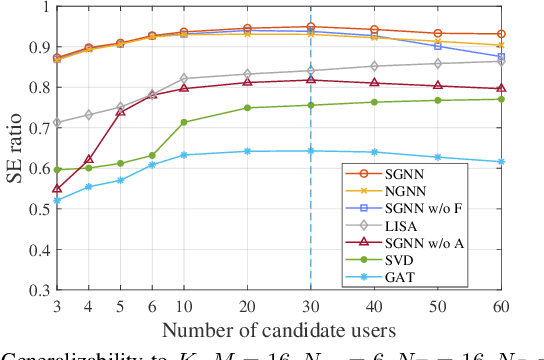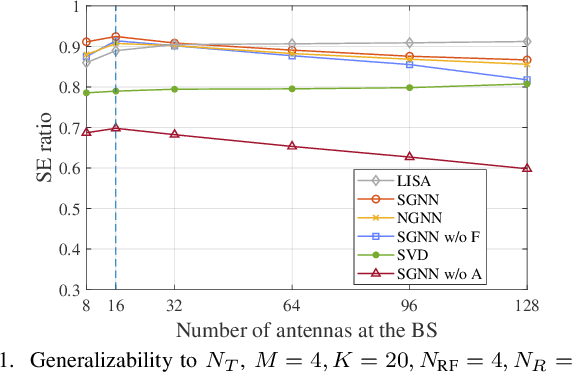Learning Wideband User Scheduling and Hybrid Precoding with Graph Neural Networks
Paper and Code
Mar 06, 2025



Spatial-frequency scheduling and hybrid precoding in wideband multi-user multi-antenna systems have never been learned jointly due to the challenges arising from the massive user combinations on resource blocks (RBs) and the shared analog precoder among RBs. In this paper, we strive to jointly learn the scheduling and precoding policies with graph neural networks (GNNs), which have emerged as a powerful tool for optimizing resource allocation thanks to their potential in generalizing across problem scales. By reformulating the joint optimization problem into an equivalent functional optimization problem for the scheduling and precoding policies, we propose a GNN-based architecture consisting of two cascaded modules to learn the two policies. We discover a same-parameter same-decision (SPSD) property for wireless policies defined on sets, revealing that a GNN cannot well learn the optimal scheduling policy when users have similar channels. This motivates us to develop a sequence of GNNs to enhance the scheduling module. Furthermore, by analyzing the SPSD property, we find when linear aggregators in GNNs impede size generalization. Based on the observation, we devise a novel attention mechanism for information aggregation in the precoder module. Simulation results demonstrate that the proposed architecture achieves satisfactory spectral efficiency with short inference time and low training complexity, and is generalizable to the numbers of users, RBs, and antennas at the base station and users.
 Add to Chrome
Add to Chrome Add to Firefox
Add to Firefox Add to Edge
Add to Edge